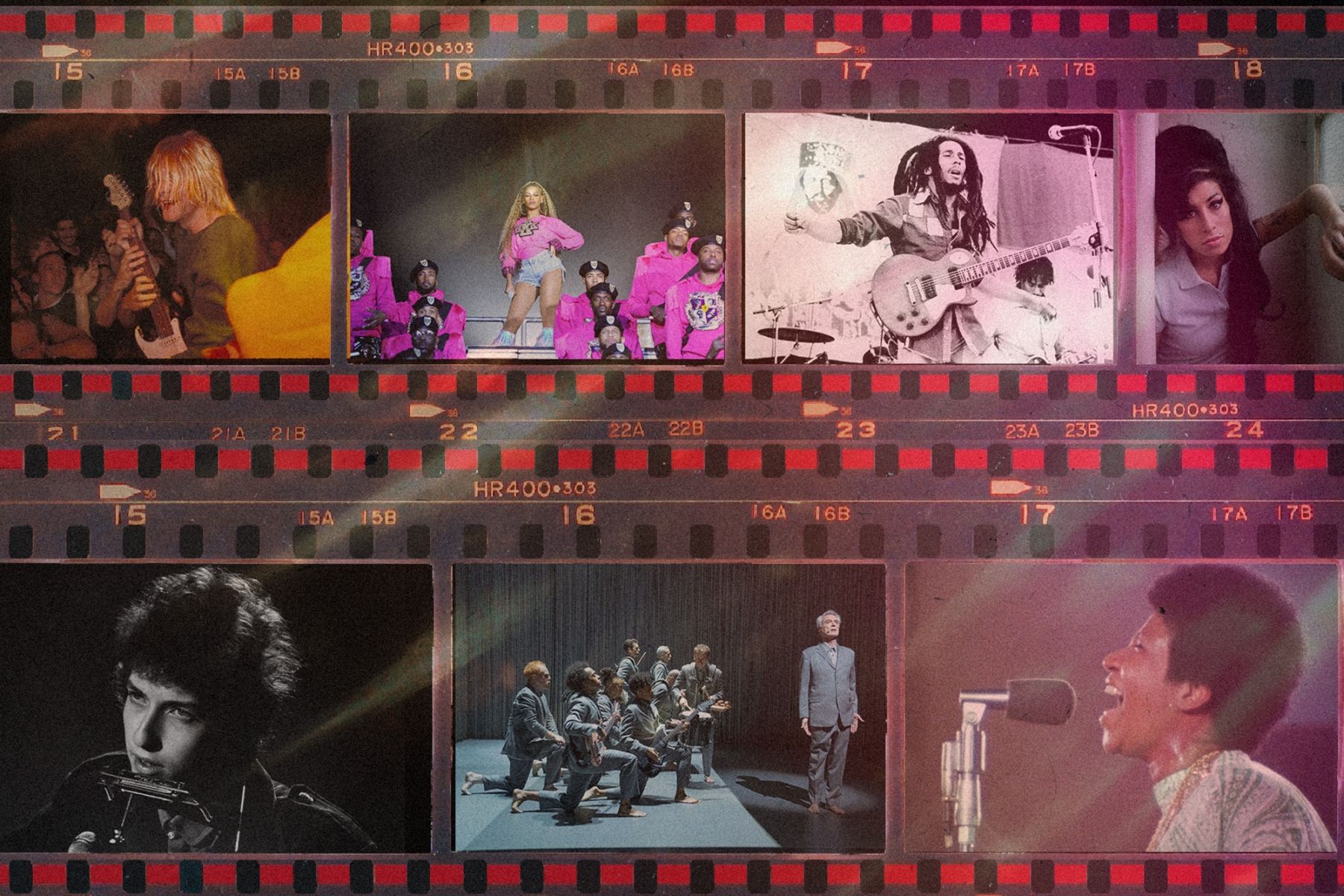‘Homeroom’ Examines a Tumultuous, Unpredictable Senior Yr
Peter Nicks’s Homeroom , that is today streaming on Hulu, may be the third access in the director’s “Oakland Trilogy,” which started in 2012 with the healthcare-centered The Waiting around Room and attained its midpoint with 2017’s The Push , a close-up watch of the Oakland law enforcement. Homeroom ’s concentrate is on Oakland SENIOR HIGH SCHOOL’s course of 2020, but this, too, is really a movie about policing, among other activities, because the college students at the movie’s middle — vivid, political, vocal — wish to accomplish something about Oakland Unified College District’s spending budget, which, we’re told, allocates huge amount of money to Oakland Great’s police, the only such push in Alameda County. In the meantime, the school board is usually proposing cuts to the solutions that the learners — particularly the college students represented on the plank of OUSD — believe that they absolutely need.
70 Greatest Music Documentaries ever
'Silence of the Lambs': THE ENTIRE Buffalo Bill Tale
That’s how it begins. What we realize that the learners don’t however know, but will find out, is that the planet at large may be the cusp of several avenues of modification. They don’t know however that their school calendar year will finish with a disconcerting pivot to digital schooling, they’ll become deprived of prom along with other capstone social activities of the senior 12 months — and that the problems they’ve been getting to the desk regarding policing are going to become even even more highly relevant to a broader populace than they might have predicted.
Homeroom supplies a solid, or even consistently incisive, see of young people getting into themselves and their political identities amid a tumultuous, unpredictable yr — a year where their political engagement functions as a definite, consistent through-range. Nicks’s technique is observational, a variety of classroom moments, capturing the shit, and meetings, with touches of social media marketing and room designed for the less magnificent areas of life as an adolescent: the minimal embarrassments, the jokes, the necessity for interest. At its greatest, it’s steeped in a way of discourse; it enables that teenagers possess discourse, they are not really the avatars of slipping sociable and political mores that lots of would have us think, but, instead, thinking, feeling, engaged, worried citizens, individuals whose politics are instantly informed by their encounters, which in this neighborhood include the connection with being non-whitened, undocumented, or elsewhere forced to call home with the feeling that with so several police around, right now there’s a focus on on some peoples’ backs.
A few of Homeroom ’s finer occasions let these conversations have fun with out in what feels nearer to real-time; Nicks obviously had plenty of material to utilize. Even the comparatively comprehensive scenes — individuals comparing SAT ratings; a classroom discussion about Shakespeare, code-slipping, and whether politics has anywhere in the classroom at all — bear the marks of these condensation. It includes a method of draining the college students’ concepts of these specifics while announcing, and reiterating, they have ideas. Moments of the learners talking through a few of the sources that ought to end up being getting funded, rather than the college’s police, are usually oddly curtailed, a touch too explicitly bullet-pointed. What exactly are these providers we hear glancing references to, the assets for ESL students which are evidently on the chopping block, for instance? We only reach see and hear therefore much, as though, the film says, what matters most may be the passion alone: what counts is that the college students know about the structures at have fun with in their lives, conscious of what counts — even though the movie itself feels less thinking about actually rooting out the compound of how and just why the learners feel these exact things matter.
That is part of what outcomes from Nicks’ strategy, which, in getting observational, instead of predicated on interviews with one of these students, implies that they aren’t being asked queries from behind the digital camera. The very best observational documentaries have the ability to create the filmmakers’ curiosities about their topics feel like an authentic, palpable curiosity, instead of like the films are using the complexities of these topics for granted. Homeroom , however, is much better at being a film about intergenerational conflict, a fight between your wills of teenagers and individuals in power.
The OUSD meetings, where the college students’ proposals to get rid of law enforcement from the district are usually discussed, work for letting us discover this divide doing his thing. The adults guarantee (and promise, and guarantee) and create excuses, and invent barriers, even while taking care to provide off a feeling of these openness to hearing. When one particular meeting results within an unfavorable result, one pupil, Denilson Garibo — Homeroom ’s closest factor to a main personality — reveals he’s undocumented, that is what’s on the line for him in this choice. After that, he turns to the non-white grownups on the table and calls them, particularly, out for not really understanding what the city is asking of these. It’s a bold shift — the best second in a film that all too often feels vague in its method of these teenagers as individuals, facing specific pressures, with requirements and personalities of these very own. Nicks tries to create up for that by over-relying on social media marketing posts, but also these prove short, glancing, as though the point is just to state that social media marketing is what teenagers use to be well informed, to communicate these passions and suggestions to each other whilst getting an outlook on the planet. Well, certain. Duh.
Homeroom ’s strength in is enabling us — encouraging us — to listen to these learners out for themselves, bearing witness to political identities amid their formation, nevertheless molten and moldable and even more useful to find for that reality. It’s as an uncanny laboratory of the problems that people, from our summer 2021 perch, know is arriving — as if the institution, and the college students debates on the allocation of financing toward police, had been a harbinger of the broader debates about defunding the authorities that the nation is about to handle. Public universities are, to be certain, a microcosm of these communities.
So when the unavoidable comes, and college shuts down, and George Floyd’s murder pushes people in to the streets, the impact, instead of making the students appearance prescient, would be to argue for their put on a continuum. As you son says, the Dark Panthers — so necessary to Oakland’s political legacy — were likewise committed to matters of schooling policing. This, as well, feels like a discussion in the movie that gets cut brief — a thing contained in the movie to remind the viewers of its reality, rather than a possiblity to explore what the learners onscreen can do with it, how they’ll procedure it, at all. The movie’s intentions are admirable. Occasions like these cause you to wish they’d been place to even more incisive use.




Recent Comments